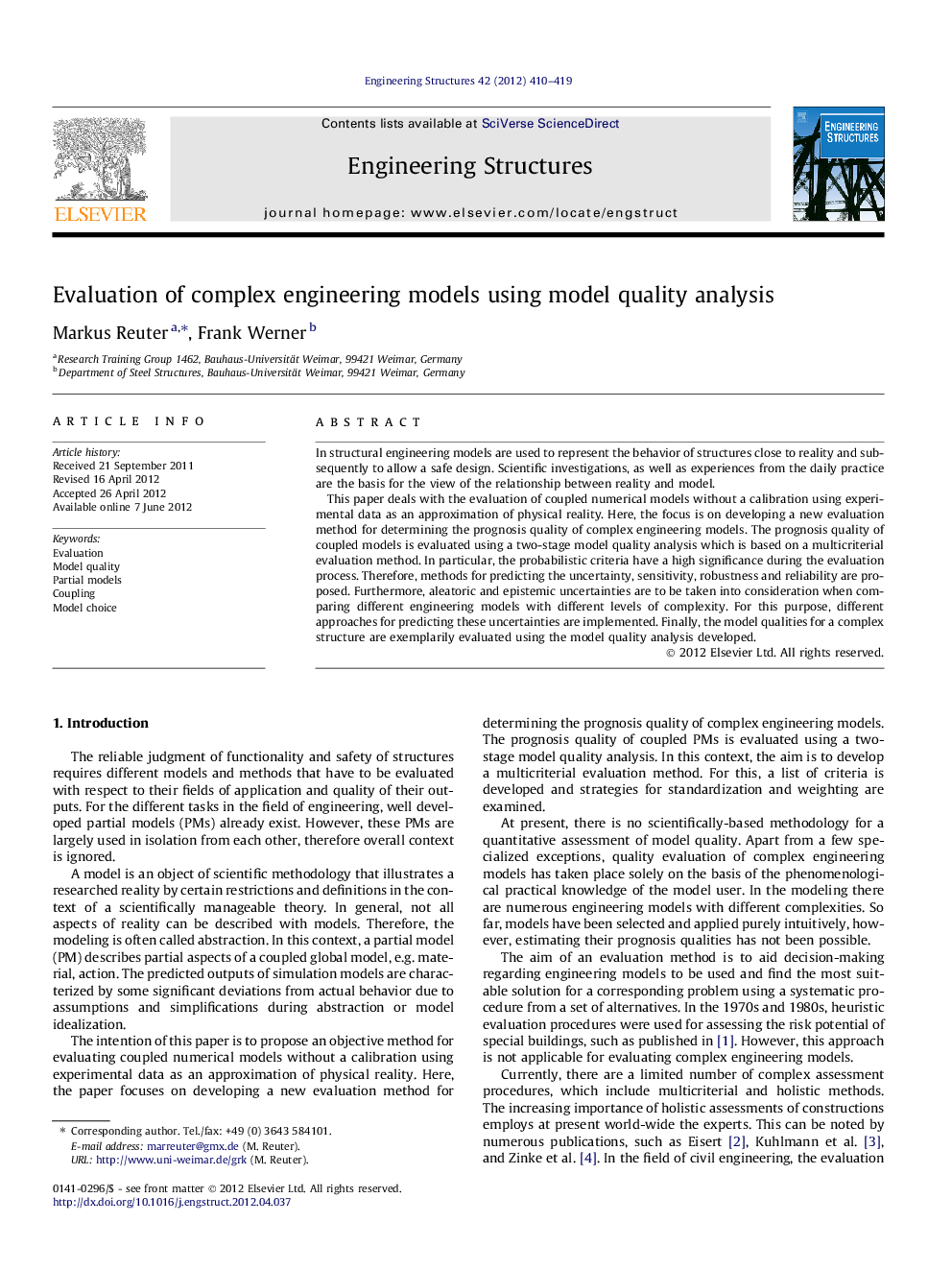| Article ID | Journal | Published Year | Pages | File Type |
|---|---|---|---|---|
| 267470 | Engineering Structures | 2012 | 10 Pages |
In structural engineering models are used to represent the behavior of structures close to reality and subsequently to allow a safe design. Scientific investigations, as well as experiences from the daily practice are the basis for the view of the relationship between reality and model.This paper deals with the evaluation of coupled numerical models without a calibration using experimental data as an approximation of physical reality. Here, the focus is on developing a new evaluation method for determining the prognosis quality of complex engineering models. The prognosis quality of coupled models is evaluated using a two-stage model quality analysis which is based on a multicriterial evaluation method. In particular, the probabilistic criteria have a high significance during the evaluation process. Therefore, methods for predicting the uncertainty, sensitivity, robustness and reliability are proposed. Furthermore, aleatoric and epistemic uncertainties are to be taken into consideration when comparing different engineering models with different levels of complexity. For this purpose, different approaches for predicting these uncertainties are implemented. Finally, the model qualities for a complex structure are exemplarily evaluated using the model quality analysis developed.
► The model quality analysis (MQA) is a powerful tool to assess the quality of models. ► The MQA developed is generic and can be applied to other engineering problems. ► A specific selection of appropriate models is possible by applying the MQA. ► The MQA is an efficient evaluation method that allows incompatible PM to be excluded. ► The results show that the most sophisticated model has not the best quality.
